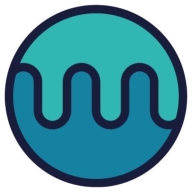

SonarQube and Mend.io compete in the code analysis and security management domain. SonarQube holds an advantage in diverse language support and enabling nuance coding policies, whereas Mend.io excels at managing open-source dependencies with high accuracy.
Features: SonarQube is praised for supporting over 200 programming languages, offering custom coding rules, and integrating Elasticsearch. Its customizable quality gates and unit test metrics help teams refine their coding policies. Mend.io shines in security management integration with development workflows. It supports more than 200 languages for accurate vulnerability detection and efficiently manages open-source dependencies using an extensive database.
Room for Improvement: SonarQube users seek better Python support, optimized integration with mobile apps, and faster loading times. Enhanced error reporting is also a user demand. Mend.io could improve its language support further and refine policy configuration tools. Users recommend a quicker UI and broader language support for vulnerability alerts.
Ease of Deployment and Customer Service: SonarQube offers both on-premises and cloud deployment options, meeting varied infrastructure needs. While its open-source community offers solid support, direct technical assistance can be pricey. Mend.io focuses on cloud deployment, suiting organizations preferring SaaS. It delivers a streamlined experience with competitive pricing, although some find its costs high for smaller enterprises.
Pricing and ROI: SonarQube's open-source version is cost-effective but can become expensive with enterprise enhancements. Its pricing corresponds to its feature range, despite additional costs seeming high. Mend.io's competitive pricing appeals to organizations needing robust SCA solutions, promising a good return on investment by enhancing security and code management.
Mend.io has provided a good return on investment by significantly reducing vulnerabilities.
It is easily integrable with the CI/CD pipeline and supports multiple projects with its extensive plugin options.
I have seen a return on the investment from SonarQube Server (formerly SonarQube) because the value it adds relates to static code analysis and vulnerability assessments needed for our FDA approval process.
We see productivity increasing based on the fact that the code review is mostly automated, allowing the developer to fix the code themselves before assigning it to someone else to review, thus receiving that ROI.
They prioritize providing the best experience to large organizations like ours, belonging to the Fortune 100.
I have noticed that the speed to respond has decreased over time.
Mend.io provides pretty good support.
The community support is quite effective.
The customer service and support for SonarQube Cloud are responsive and helpful.
Integrating it into different solutions is straightforward.
There are limitations, and it seems to have fewer capabilities than Veracode.
It has been used in multiple projects and performs well.
I would rate the scalability of SonarQube Server as a 10 because we can configure the server to scan multiple projects based on the number of lines.
Mend.io is very stable; we did not have any issues.
AI integration in code security tools like Mend.io is still in its early stages and relatively immature.
I think SonarQube Server (formerly SonarQube) is stable, and we did not face any problems unless there was a power outage or if the LAN cable was plugged out.
From my team's feedback, it is almost an eight out of ten.
It is a quite stable solution.
That's not a limitation of Mend.io; I think that's a general problem with any tool in the market because no tool in the market will actually know what portion of the code I'm actually using from that particular library if it is vulnerable or not.
The actual challenge is how easy it is to integrate it in the early phase of the software development life cycle.
I strongly recommend that they start working with AI for the reporting part.
I would like to see SonarQube Cloud provide more detailed solutions for fixing code issues, especially solutions related to CVEs.
I need a solution that can bring together three key areas: vulnerabilities, static scanning, and misarchitecture.
Static code analysis is good, but the product lacks dynamic code scanning capabilities, an area where Veracode excels.
The cost of Mend.io is competitive, being quite low compared to others.
I would rate the pricing for SonarQube Server (formerly SonarQube) as an 8, where 1 is very cheap and 10 is very expensive, because Coverity is very expensive, and while SonarQube is not cheap, it is still less expensive than Coverity.
They always offer around a two-year contract, but we always take a one-year contract because it's expensive.
The freemium version of SonarQube Server offers excellent value, especially compared to the high costs of Snyk.
We find it 100% accurate in detecting vulnerabilities.
It handles Application Security, performing SCA SAST and container scanning.
The features I find most valuable in Mend.io are the ease of use; it is very easy to access and integrate.
Some of the static code analysis capabilities are the most beneficial.
I find SonarQube Cloud very easy to use and simple to integrate initially.
It gives precise reports compared to Coverity and has a slightly lower number of false positives.
| Product | Market Share (%) |
|---|---|
| SonarQube | 17.9% |
| Mend.io | 2.8% |
| Other | 79.3% |

| Company Size | Count |
|---|---|
| Small Business | 10 |
| Midsize Enterprise | 3 |
| Large Enterprise | 20 |
| Company Size | Count |
|---|---|
| Small Business | 41 |
| Midsize Enterprise | 24 |
| Large Enterprise | 79 |
Mend.io is a software composition analysis tool that secures what developers create. The solution provides an automated reduction of the software attack surface, reduces developer burdens, and accelerates app delivery. Mend.io provides open-source analysis with its in-house and other multiple sources of software vulnerabilities. In addition, the solution offers license and policy violation alerts, has great pipeline integration, and, since it is a SaaS (software as a service), it doesn’t require you to physically maintain servers or data centers for any implementation. Not only does Mend.io reduce enterprise application security risk, it also helps developers meet deadlines faster.
Mend.io Features
Mend.io has many valuable key features. Some of the most useful ones include:
Mend.io Benefits
There are many benefits to implementing Mend.io. Some of the biggest advantages the solution offers include:
Reviews from Real Users
Below are some reviews and helpful feedback written by PeerSpot users currently using the Mend.io solution.
Jeffrey H., System Manager of Cloud Engineering at Common Spirit, says, “Finding vulnerabilities is pretty easy. Mend.io (formerly WhiteSource) does a great job of that and we had quite a few when we first put this in place. Mend.io does a very good job of finding the open-source, checking the versions, and making sure they're secure. They notify us of critical high, medium, and low impacts, and if anything is wrong. We find the product very easy to use and we use it as a core part of our strategy for scanning product code moving toward release.”
PeerSpot reviewer Ben D., Head of Software Engineering at a legal firm, mentions, “The way WhiteSource scans the code is great. It’s easy to identify and remediate open source vulnerabilities using this solution. WhiteSource helped reduce our mean time to resolution since we adopted the product. In terms of integration, it's pretty easy.”
An IT Service Manager at a wholesaler/distributor comments, “Mend.io provides threat detection and an excellent UI in a highly stable solution, with outstanding technical support.”
Another reviewer, Kevin D., Intramural OfficialIntramural at Northeastern University, states, "The vulnerability analysis is the best aspect of the solution."
SonarQube provides comprehensive support for multi-language development, custom coding rules, and quality gates, integrated seamlessly into CI/CD pipelines. It empowers teams with clear insights through intuitive dashboards, identifying vulnerabilities, code smells, and technical debt.
SonarQube is renowned for its extensive capabilities in static code analysis, making it an invaluable tool for maintaining code quality. By fully integrating into development processes, it allows organizations to manage vulnerabilities and ensure compliance with coding standards. Its extensive community and open-source roots contribute to its accessibility, while robust dashboards facilitate code quality monitoring. Despite its strengths, feedback suggests enhancing analysis speed, better integration with DevOps tools, and refining the user interface. Users also point to the need for handling false positives effectively and expanding on AI-based features for dynamic code analysis.
What are SonarQube's main features?In industries like finance and healthcare, SonarQube aids in obtaining regulatory compliance through rigorous code quality assessments. It is implemented to enhance cybersecurity by identifying potential vulnerabilities, while ensuring code meets the stringent standards demanded in these fields. As part of a broader development ecosystem, its integration in CI/CD pipelines ensures smooth and efficient software delivery, catering to phases from code inception to deployment, effectively supporting large-scale and critical software applications.
We monitor all Application Security Tools reviews to prevent fraudulent reviews and keep review quality high. We do not post reviews by company employees or direct competitors. We validate each review for authenticity via cross-reference with LinkedIn, and personal follow-up with the reviewer when necessary.